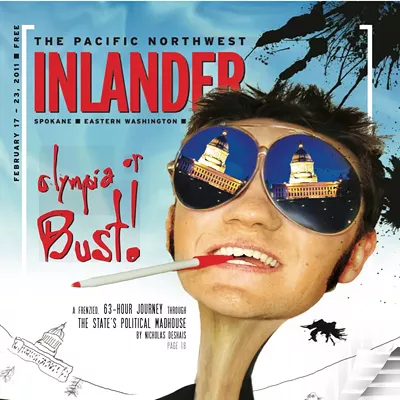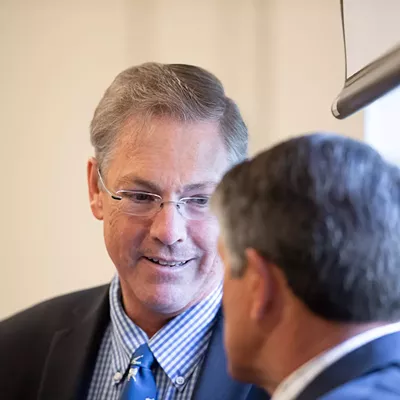Four years after the Supreme Court's controversial Citizens United rulings unleashed floods of cash into our political system by shadowy "dark money" groups vying to influence elections, Washington state's own campaign finance disclosure laws may become more transparent under a new bill proposed by state Sen. Andy Billig, D-Spokane.
Under current state law, certain nonprofit groups can spend unlimited amounts of money on Washington campaigns without revealing their funders because they're outside the statutory definition of a "political committee," says Lori Anderson of the Public Disclosure Commission.
"If they don't fall under that definition, like an organization that has money and incidentally decides that it wants to spend that money on the campaign ... they don't have a disclosure requirement," she says.
Billig's proposal essentially broadens the definition of "political committee" by requiring all organizations, regardless of their incorporated status or primary purpose, to disclose their donors if they spend significantly in a Washington race: at least $100,000 in a statewide campaign or $20,000 in a local election. The bill, Billig says, would "even the playing field" between political committees and groups that aren't currently bound by disclosure laws. So far, the legislation has garnered bipartisan support, with two Republican co-sponsors.
"The reason we have disclosure and transparency is to reduce the opportunity of corruption and to help voters be informed," Billig says. "That helps us to have a healthier democracy."
Billig says he started drafting the bill last year after watching outside spending by "dark money" groups skyrocket at the national level. Take the 2012 campaign cycle, the most expensive to date, with costs exceeding $7 billion: Political nonprofits spent more than $300 million — a roughly 350 percent increase from 2008 — without disclosing their donors.
"In anticipation of nonprofit groups that may start to significantly participate in elections in Washington," Billig says, "we wanted to proactively put a law into place to require disclosure for these kinds of groups."
His timing couldn't be better. In Washington's most recent election, two deep-pocketed groups were able to dodge — initially, at least — the state's campaign finance disclosure laws. Attorney General Bob Ferguson is embroiled in litigation against the industry-backed Grocery Manufacturers Association, which collected $10.6 million from its members to oppose Initiative 522 for labeling genetically engineered food before Ferguson forced the group to reveal the names of its contributors. (GMA is now countersuing Ferguson, claiming the attorney general inappropriately applied Washington's disclosure laws.)
On the opposite side of the political spectrum, Working Washington, a pro-labor nonprofit that's partially funded by the Service Employees International Union, donated nearly a quarter of a million dollars to SeaTac's $15 minimum wage fight. Identifying the group's mystery donors, however, is impossible.
The economic stakes for these shadowy industry and union groups are "huge," says Todd Donovan, a political science professor at Western Washington University. That's why he expects that Washington's dueling gun control initiatives — 594 and 591 — similarly will draw torrents of money into the 2014 election.
"These national groups will spend a lot of money here," Donovan says. "They're looking toward the bigger agenda." ♦






















